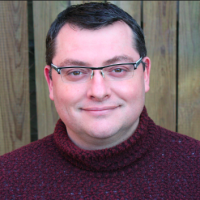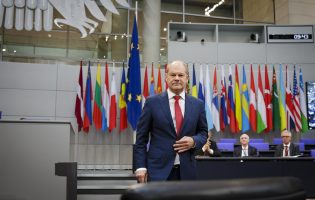Growing Populism in the U.S. and Germany

Eric Langenbacher
Senior Fellow; Director, Society, Culture & Politics Program
Dr. Eric Langenbacher is a Senior Fellow and Director of the Society, Culture & Politics Program at AICGS.
Dr. Langenbacher studied in Canada before completing his PhD in Georgetown University’s Government Department in 2002. His research interests include collective memory, political culture, and electoral politics in Germany and Europe. Recent publications include the edited volumes Twilight of the Merkel Era: Power and Politics in Germany after the 2017 Bundestag Election (2019), The Merkel Republic: The 2013 Bundestag Election and its Consequences (2015), Dynamics of Memory and Identity in Contemporary Europe (co-edited with Ruth Wittlinger and Bill Niven, 2013), Power and the Past: Collective Memory and International Relations (co-edited with Yossi Shain, 2010), and From the Bonn to the Berlin Republic: Germany at the Twentieth Anniversary of Unification (co-edited with Jeffrey J. Anderson, 2010). With David Conradt, he is also the author of The German Polity, 10th and 11th edition (2013, 2017).
Dr. Langenbacher remains affiliated with Georgetown University as Teaching Professor and Director of the Honors Program in the Department of Government. He has also taught at George Washington University, Washington College, The University of Navarre, and the Universidad Nacional de General San Martin in Buenos Aires, Argentina, and has given talks across the world. He was selected Faculty Member of the Year by the School of Foreign Service in 2009 and was awarded a Fulbright grant in 1999-2000 and the Hopper Memorial Fellowship at Georgetown in 2000-2001. Since 2005, he has also been Managing Editor of German Politics and Society, which is housed in Georgetown’s BMW Center for German and European Studies. Dr. Langenbacher has also planned and run dozens of short programs for groups from abroad, as well as for the U.S. Departments of State and Defense on a variety of topics pertaining to American and comparative politics, business, culture, and public policy.
__
Seemingly in all corners of the world right-wing populism is rising. A more chauvinistic renationalization of politics, criticism of free trade regimes and globalization, and a general coarsening of rhetoric are salient. Although much attention has been devoted to the Donald Trump candidacy in the U.S. and the spiking support for the Alternative for Germany, we should not forget France’s National Front, the Brexiteers, or Vladimir Putin for that matter.
Furthermore, the promise of a rule-governed post Cold-War era of “perpetual peace” is fraying. Currently there are more international refugees than at any point since 1945. Violence or the threat of violence has occurred across the globe—from Syria, to Yemen, to the South China Sea, to Ukraine, to North Korea. More and more regimes are moving away from the liberal democratic ideal, most recently Turkey, Egypt, and the Philippines.
These two trends are interrelated. But looking specifically at the transatlantic arena, the issue of the moment is understanding where support for such populist movements is coming, what grievances or demands such citizens have, and how and if such groups can be accommodated, countered, or placated.
Of course, the nature of the political system matters immensely. A more majoritarian system like the U.S. can be more susceptible to populist pressures if one of the main parties and social actors is influenced by populism—as evidenced by the Republican Party. In a more consensual, parliamentary system like Germany, such forces can be “quarantined” in a parliament so that their influence is more constrained.
Yet, the media, civil society, and culture can and do play a role in responding to such movements. The most salient dynamic in the U.S. over the last years is how two very different Americas have evolved. Polarization extends much more deeply than the choice of presidential candidates. Media, civil society, and culture are quite distinctive today in “red” and “blue” America. There is massive distrust between the two camps and especially from the “red” American camp toward “the establishment” and “mainstream press” associated with the other side.
Many people have asked me about similar polarizing dynamics in Germany. Despite some troubling signs, I do not see that yet. The distrust of the Lügenpresse and “politicians” still seems confined to a more radical fringe. The pillars of the civilized postwar order—the Bundestag, the public media, the rule of law—still maintain a degree of authority. Although differences of opinion surely exist—especially in regard to the migration and other crises—they have not degenerated as in the U.S. to become a deep cleavage.
For me, the most important issue that this dialogue can address is an assessment of the capacity of German social, political, and civic actors to respond to the populist moment. Can Germany maintain its postwar civil traditions? Will political and memory culture continue to stress reconciliation and civil discourse inside and outside of the country? Or will the country succumb to the polarization of society and coarsening of politics so evident in recent U.S. experience with potentially destabilizing consequences?








